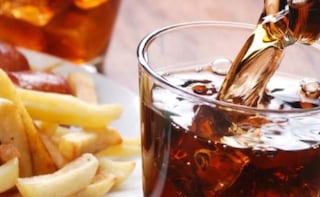In order to remain fit and healthy, it is imperative to follow a diet that is devoid of greasy and junk foods and is rich in seasonal veggies and fruits. While there is no denying the fact that it is essential to consume all macro and micro-nutrients, over-consumption of any component in the diet may turn out to be unfavourable for your overall health. As per a recent study published in the journal 'Cell Metabolism', high dietary fructose in processed foods and sugar-sweetened beverages has more negative health impacts than glucose does, even though they have the same caloric content. The researchers of the study warn that high-fructose diet may damage the liver's ability to properly burn fat.
"The most important takeaway of this study is that high fructose in the diet is bad," said lead study author C. Ronald Kahn, Professor of Medicine at Harvard Medical School.
"It's not bad because it's more calories, but because it has effects on liver metabolism to make it worse at burning fat. As a result, adding fructose to the diet makes the liver store more fat, and this is bad for the liver and bad for whole body metabolism," Kahn, who also serves as the Chief Academic Officer at Joslin Diabetes Center in the US, said.
The researchers compared effects on metabolism of six different diets in a series of animal studies; regular chow, chow with high glucose, chow with high fructose, a high-fat diet with high fructose, a high-fat diet, and a high-fat diet with high glucose. The different known markers of fatty liver were then analysed by the researchers in an attempt to determine the effects of each diet.
As per the findings of the study, Acylcarnitines were highest in the animals on the high-fat plus high fructose diet. On the other hand, Acylcarnitines were lower in the high-fat plus glucose diet than in the plain high-fat diet. This particular finding indicated that glucose performed an assistive fat-burning action in these animals.
In addition to this, the researchers also monitored the activity of CPT1a, which is a critical enzyme for burning fat. The researchers found out that in the high-fat plus fructose diet, the levels of CPT1a are low and their activity was very low, which means that mitochondria cannot function properly.
